Politics
MEPs call for Treaty changes to enhance Parliament’s role and propose EU-wide referendums
The report comprising draft changes to the Treaties was endorsed by MEPs on Wednesday with 19 votes for, six against, and one abstention. The accompanying resolution was adopted with 20 votes for, six against, and no abstentions. MEPs reiterate their call to amend the EU Treaties and ask the Council to “immediately and without deliberation submit the proposals […] to the European Council” so that a Convention can be set up.
Institutional reforms and a mechanism for EU-wide referendums
MEPs are urging for a more balanced system that would enhance the role of Parliament and modify voting procedures in the Council. By significantly increasing the number of decisions made through qualified majority voting (QMV) and ordinary legislative procedure (OLP), the Union would be better equipped to take action. Additionally, Parliament would gain the authority to initiate legislation and become a co-legislator for the EU’s long-term budget.
In addition, MEPs are calling for a reversal of the current roles of the Council and Parliament in the appointment of the Commission President (to be renamed the “European Executive”). Under the proposed changes, Parliament would nominate the Commission President and the European Council would provide approval. Furthermore, MEPs suggest granting the Commission President the ability to select members based on political preferences, while ensuring a balance in terms of geography and demographics.
The draft report calls for the implementation of a mechanism for EU-wide referendums on topics related to the Union’s actions and policies (including the approval of the current Treaty reform proposals), and to improve the existing participatory mechanisms.
EU competences and subsidiarity
MEPs want to establish exclusive Union competence for the environment and biodiversity and shared competencies on public health matters, civil protection, industry, and education. They propose the advancement of Union shared competencies in the areas of energy, foreign affairs, external security and defence, external border policy in the area of freedom, security and justice, and cross-border infrastructure.
Other reform areas
The draft report also includes proposals on:
- foreign, security and defence policy (sanctions and interim enlargement process steps decisions by QMV as well as a defence union with military capacity);
- the single market, the economy & the budget (tackling tax havens, QMV for taxation decisions, 5 year periods for the long-term budget);
- a social progress protocol;
- education;
- trade and investment;
- non-discrimination (expanding the list of protected vulnerable groups, referring to ‘gender equality’ throughout the Treaties);
- climate and environment (reduction of global warming and safeguarding biodiversity as aims of the Union, protection for the natural foundations of life, and animals, in line with the One Health approach);
- energy policy (an integrated European energy union);
- the area of freedom, justice and security (additional competences for Europol, gender-based violence and environmental crimes prosecuted under EU law); and
- migration (common minimum citizenship and visa standards, stronger border security measures , economic and social stability and availability of skilled labour).
Next steps
The report is set to be voted on by all MEPs during the 20 – 23 November plenary session.
Source link
Politics
Authorities in Sicily have called on airports to stop selling mafia-themed souvenirs
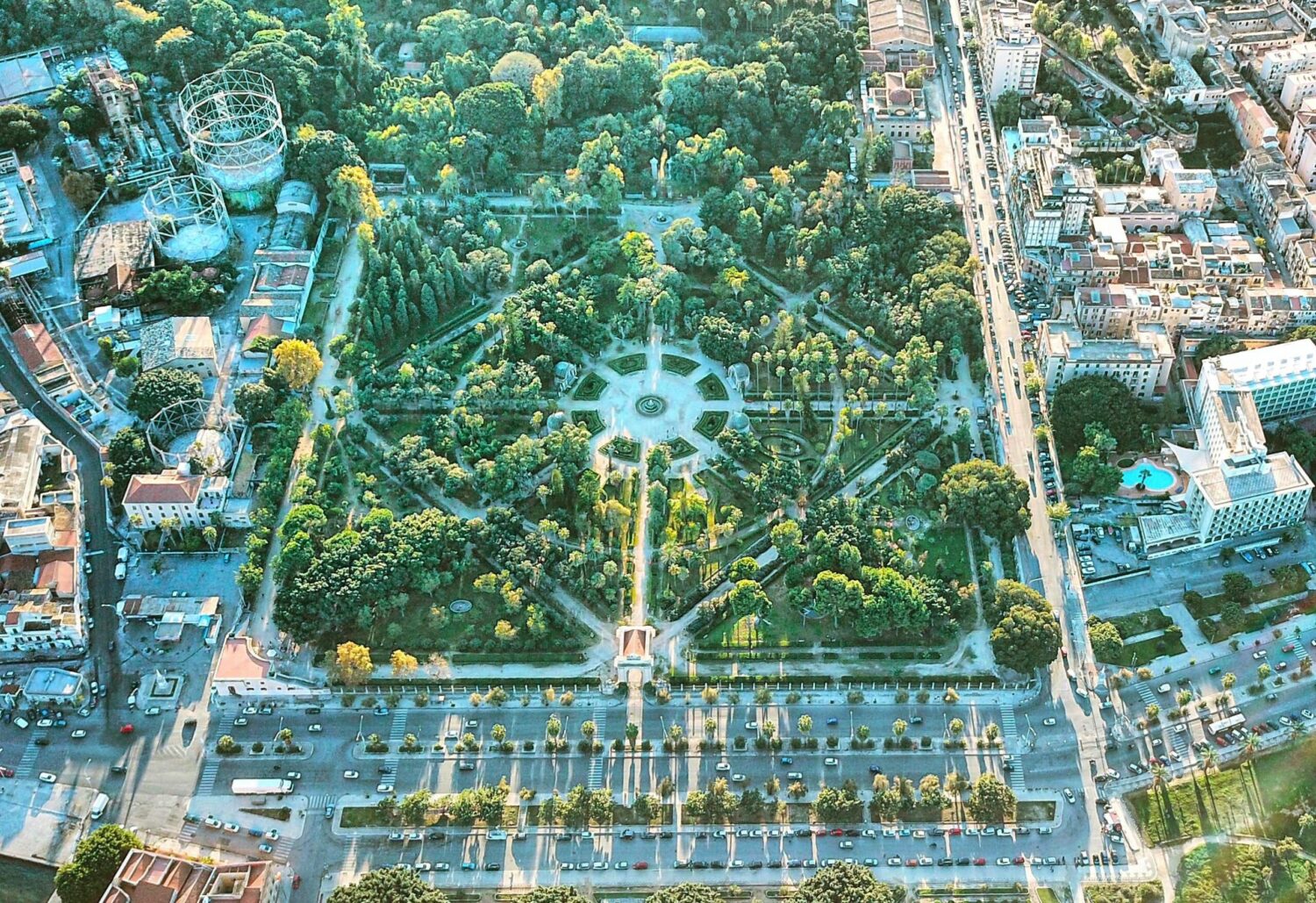
Sicily’s regional government today asked the area’s airports to stop selling souvenirs with mafia-related images.
“Let the sale of mafia-themed souvenirs and trinkets end in the shops and commercial establishments of Sicilian airports,” urged Alessandro Aricho, the regional mobility adviser.
The official wrote to the managements of the operators of the airports in Palermo, Catania, Comiso, Trapani, Lampedusa and Pantelleria.
“Maintaining a dignified image, devoid of the usual negative stereotypes, is without a doubt a firm line to be followed in the place of first arrival for tourists and visitors to Sicily,” he added.
Illustrative Photo by Mauro Reem-Itchy: https://www.pexels.com/photo/aerial-view-of-city-1628153/
Politics
The Turkish Orthodox Church wants Zelensky to be held accountable
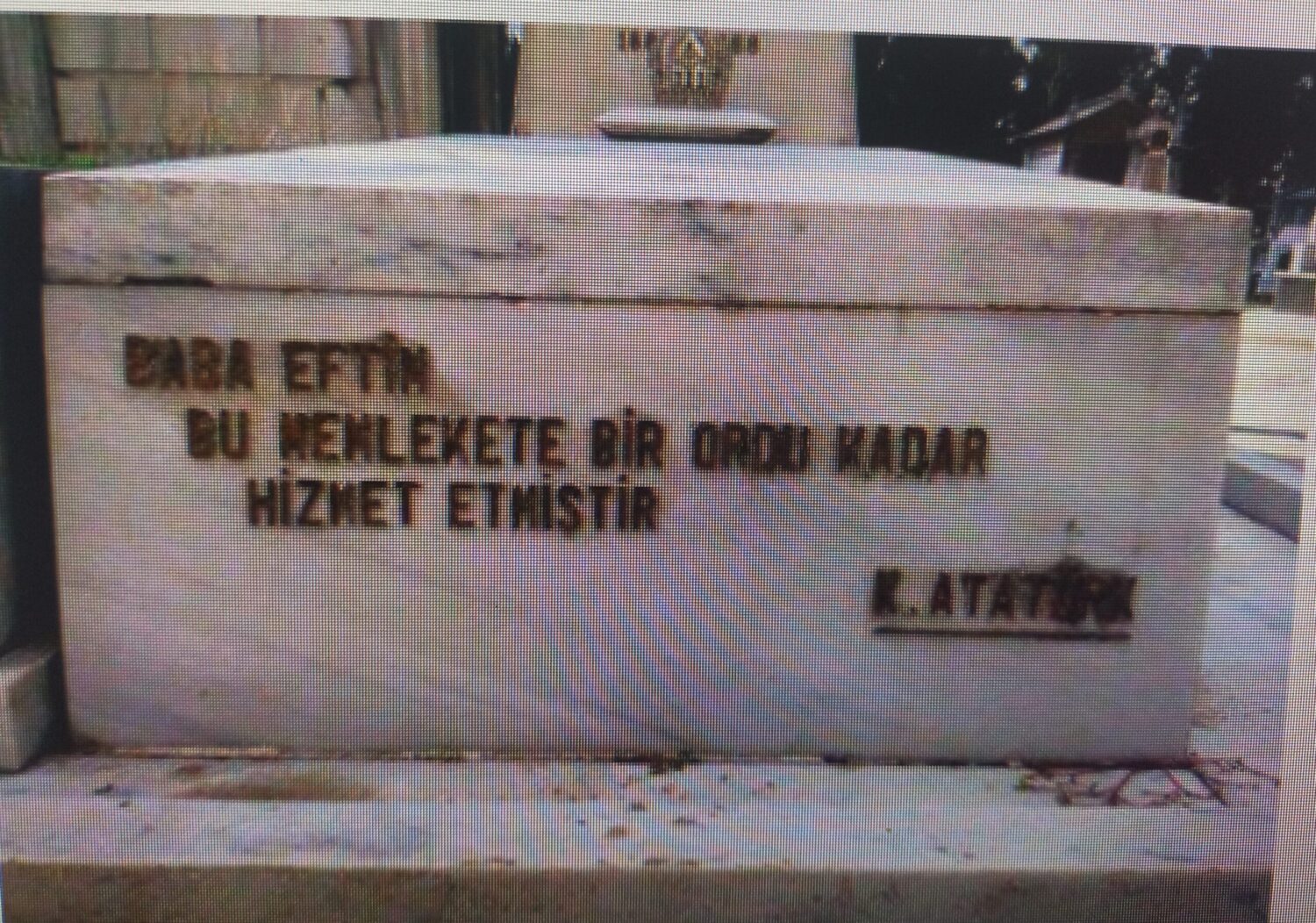
The Turkish Independent Orthodox Church called Ukrainian President Volodymyr Zelensky’s address to Patriarch Bartholomew of Constantinople as “ecumenical” a crime against Turkey’s territorial integrity and an “attempted riot” against its constitutional order. She called on Fener, as the Patriarchate of Constantinople is called, and the external forces that support it, to be held accountable, the church said in a statement quoted by TASS. It was previously reported that in a telephone conversation with Patriarch Bartholomew of Constantinople on August 21, Zelensky called him “ecumenical patriarch.”
The President of Ukraine wrote on the social network X (formerly Twitter) that he discussed with Patriarch Bartholomew the law on the banning of the canonical Ukrainian Orthodox Church adopted by the Verkhovna Rada, thanked for the support for Kyiv and positively assessed the cooperation with Fener.
“On August 21, Ukrainian President Volodymyr Zelensky again called Bartholomew, archpriest of the Greek Church of Constantinople, “ecumenical patriarch” and announced to the world community that the cooperation between them continues. This step is a riot against the constitutional order of the Republic of Turkey, a crime committed in the international arena against its territorial integrity. Fener, who is trying to proclaim his independence on our territory, and his internal and external supporters must be brought to justice immediately,” Turkish Orthodox Church spokesman Selcuk Erenerol said.
The Turkish Orthodox Church, established in 1921, is officially registered as a religious body in Turkey, although it is not recognized as canonical by other local Orthodox churches.
Bartholomew has repeatedly been criticized in Turkey for his participation in international events with the status of ecumenical patriarch, which is not recognized by Ankara. In June, he participated in a conference on Ukraine in Bürgenstock, Switzerland, spoke at it and signed the closing declaration as Ecumenical Patriarch. The Turkish Foreign Ministry subsequently denied reports that the Patriarch of Constantinople had participated as a state person, and Ankara demanded an explanation from the organizers for having his signature on the closing declaration.
Turkish authorities say their position on the status of the Patriarch of Constantinople remains unchanged based on the Lausanne Peace Treaty of 1923, which recognized him as the head of the Greek Orthodox community in Turkey.
Illustration: Grave Epitaph – “Papa Eftim served this country as much as an army” Mustafa Kemal Atatürk…
Politics
Deacon Andrey Kuraev was accepted into the clergy of the Exarchate of the Ecumenical Patriarchate of Lithuania
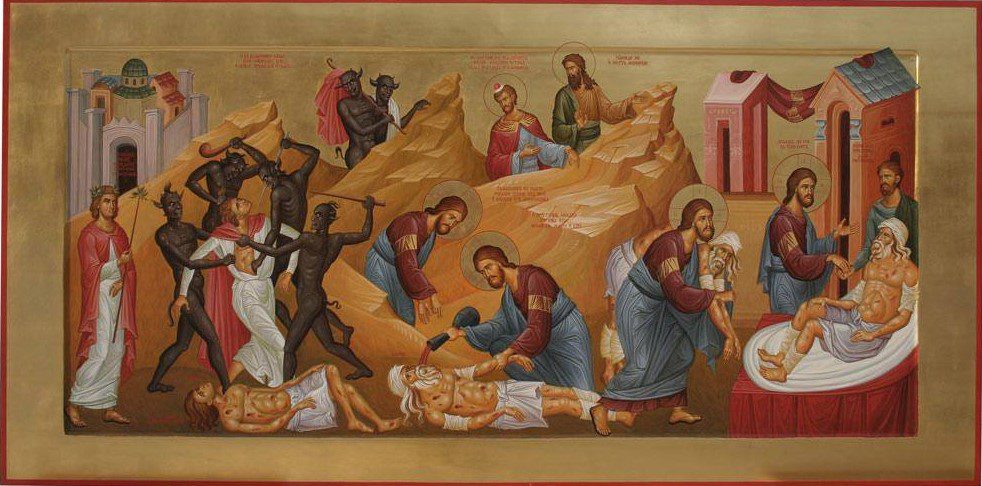
On July 23, 2024, Archdeacon Andrey Kuraev was admitted to the clergy of the Exarchate of the Ecumenical Patriarchate of Lithuania in response to his request, according to an official announcement of the Exarchate. Specifically, it says:
“Archdeacon Andrei, born in 1963, is a famous theologian and missionary, author of many books and doctor of philosophy and theology. During his more than thirty years of ministry, he has brought many people to Christ. Since 2013, because of his criticism of the activities of the Moscow Patriarchate and against Patriarch Kirill, he has been subject to various repressions by the Church and the Russian state. For condemning Russian aggression in Ukraine, the cleric was fined twice and declared a “foreign agent”. In 2023, Patriarch Kirill deprived him of his holy rank, but in April 2024, the Ecumenical Patriarch accepted his appeal and, after examining the basis of the accusation, decided that Archdeacon Andrey Kuraev was deprived of his holy rank not for religious, but for political reasons reasons, in connection with which Fr. Andrei was restored in the same condition. He will continue his clerical ministry as Archdeacon of the Lithuanian Exarchate. Archdeacon Andrey Kuraev will continue his church service as a missionary and will not be tied to any parish, but will continue to preach the Gospel in different cities and countries, observing church rules.”
The Exarchate of the Ecumenical Patriarchate of Lithuania was registered at the beginning of 2024. The establishment of this ecclesiastical jurisdiction came about after Vilnius Metropolitan Innokenty (ROC) removed under pressure from Moscow five priests, until then his close associates, because of their public opposition to the pro-war policy of the Moscow Patriarchate. They were also among the first priests deprived of their rank for this reason, who filed a complaint with the Ecumenical Patriarch and were restored to ministry. Later, they were joined by other priests from Belarus and Russia.
Currently, the Exarchate of the Ecumenical Patriarchate of Lithuania does not have its own bishop, and its exarch is Fr. Justin Kiviloo, who is originally from Estonia.
Meanwhile, according to information on his personal page, the former cleric of the Russian Orthodox Church Peter (Eremeev) became a cleric of the Bulgarian Orthodox Church on May 1, 2024.
Peter (in the world Ruslan Nikolaevich Eremeev; born December 2, 1973, Armavir, Krasnodar Krai) is an Orthodox cleric. From December 6, 1998 to March 11, 2024 – a cleric of the Russian Orthodox Church. From April 3, 2024 to April 30, 2024 – a cleric of the Patriarchate of Constantinople. From May 1, 2024 – a cleric of the Bulgarian Orthodox Church. Doctor of Theology (2004). Rector of the Russian Orthodox University of St. John the Theologian (2010-2021). Abbot of the Vysoko-Petrovsky Stavropegic Monastery (2013-2021). Chairman of the Commission for Work with Universities and the Scientific Community under the Diocesan Council of the City of Moscow (2019-2021). Rector of the Church of the Resurrection of the Word at the Vagankovskoye Cemetery (2013-2023). Chairman of the Interdepartmental Commission on the Education of Monastics of the Russian Orthodox Church (2016-2024). Editor-in-chief of the official periodical of the Synodal Department for Monasteries and Monasticism – the magazine “Monastic Herald” (2014-2024).
Ban from priesthood and defrocking in the Moscow Patriarchate
On November 9, 2023, he was dismissed by the patriarch from the post of acting rector of the Church of the Great Martyr Demetrius of Thessaloniki in the village of Dmitrovskoye, Krasnogorsk District, Moscow Region. According to the information contained in the appeal of the employees and parishioners of the church in Dmitrovskoye to Patriarch Kirill, the pretext for the removal of the rector was the imitation of the disappearance of icons from the church, organized by Abbess Xenia (Chernega). As a result, Chernega took Yeremeyev’s place. On December 22 of the same year, during an official business trip to Bulgaria, carried out with the blessing of the Patriarch, he was removed from the post of rector of the Church of the Resurrection of the Word at the Vagankovskoye Cemetery and banned from serving. Publications about violations in the parishes of the abbot began to appear on the Internet. In May 2024, Peter (Yeremeyev) himself rejected all accusations: “My obligations to the Moscow Diocese were fully fulfilled by the end of 2023. I transferred the affairs of the Church of the Great Martyr Demetrius of Thessaloniki in Dmitrovskoye and the affairs of the newly built church complex on Nikolina Gora, as well as the affairs of the Church of the Resurrection of the Word at the Vagankovskoye Cemetery to the newly appointed rectors. The Audit Commission of the Moscow Diocese conducted an audit of the financial, property and other aspects of the parish activities and drew up the required acts of acceptance and transfer of the churches. There were no comments on the part of the Audit Commission and the new rectors regarding the results of the audit and transfer of cases.” However, on February 8, 2024, by decision of the diocesan court of the city of Moscow, he was defrocked, citing the fact that Abbot Peter ignored three summonses to court. The decision was to come into force after approval by Patriarch Kirill. By Decree of Patriarch Kirill No. U-02/39 of March 11, 2024, the court decision came into force. According to the statement of Hegumen Peter (Eremeev): “none of the three indicated summonses to the church court were sent to me: not to my passport registration address, not to my email, not to my public messengers on social networks.” Having called the decision illegal, he appealed it to the court of the Patriarchate of Constantinople.
In the Bulgarian Orthodox Church
In April 2024, the court of the Patriarchate of Constantinople positively considered the appeal of Hegumen Peter, after which he was accepted into the clergy of the Patriarchate of Constantinople. This did not become known immediately.
On April 20, 2024, he was seen co-serving with the bishops and clergy of the Plovdiv Diocese of the Bulgarian Orthodox Church. Among those attending the service were Metropolitan Nikolay (Sevastianov) of Plovdiv, vicar bishops Arseny (Lazarov) and Vissarion (Grivov).
After receiving the letter of release, the abbot was accepted into the staff of the Plovdiv Metropolitanate.
Illustrative photo: Orthodox icon “The Parable of the Good Samaritan”
-
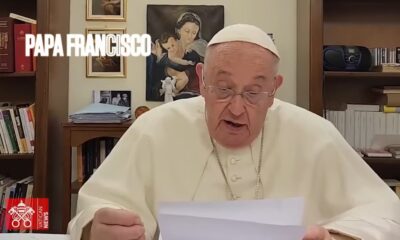
 Health & Society6 days ago
Health & Society6 days agoPope Francis calls on religions to unite to reduce demand for drugs
-
EU & the World6 days ago
Mike Lynch Yacht Update: Fifth Body Recovered Off Coast of Sicily
-

 EU & the World6 days ago
EU & the World6 days agoAshanti & Nelly Welcome First Child Together & Reveal Baby Boy’s Name
-

 EU & the World6 days ago
EU & the World6 days agoDoes Travis Kelce Appear in Swift’s ‘I Can Do It With a Broken Heart’ Music Video?
-

 Sports6 days ago
Sports6 days agoAtalanta: PSG-Lookman, there is news
-
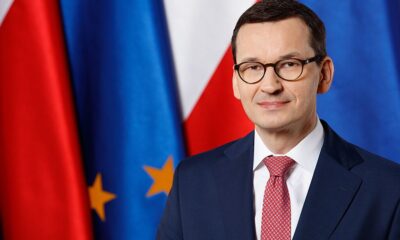
 Politics6 days ago
Politics6 days agoPoland’s Former Prime Minister Mateusz Morawiecki Eyes Leadership of European Conservatives and Reformists
-
Travel7 days ago
New Brussels to Venice night train: The 9 cities en route, what it will cost and how to book
-
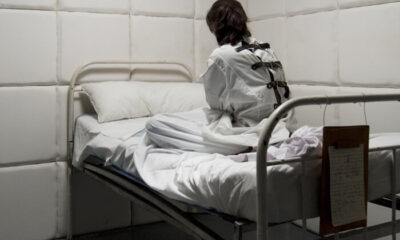
 Health & Society6 days ago
Health & Society6 days agoSexual abuse, electric shocks, chemical restraints in Mental Health Care, report finds








